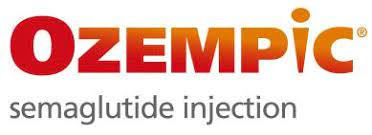A recent post by the always-worth-reading jazz critic Ted Gioia—”Investment Funds Are Now Selling the Rock Songs They Bought”—is interesting for a lot of reasons (investment funds bought rock songs?!), but of course what caught my attention was the name of the leading song investment fund: Hipgnosis, a portmanteau of hip and gnosis (“special knowledge of spiritual mysteries”). It’s almost … hypnotizing.
I’ve published two stories on Medium this month: “The Story I Wasn’t Supposed to Read” (or, why a book should be a door, not a mirror) and “Six Things I’ve Learned from Watching Film Noir” (#1: Everyone looks better in a hat). If you like my stories, please consider (a) becoming a Medium member and (b) tapping that clapping-hands icon on each story once, twice, up to 50 times.
Merriam-Webster added 690 “new” words to its dictionary in September; here are some of the most interesting ones. I put “new” in quotes because some of the words have been around for quite a while: I wrote about rotoscoping in 2006, about vanity card in 2010, about thirst trap in 2017, and about forever chemicals in 2021..
Here’s a another newish word: delulu, a truncation of “delusional.” Linguist Matthew Veras Barros heard it from his students and tracked it back to K-Pop (Korean pop music) circa 2014. (Medium)
Hurricane naming through the ages: A turbulent, storied history. (Zinzin)

The cover story of the November issue of The Atlantic—about how the Washington Post covered Trump—was written by Marty Baron, the paper’s former editor. It’s worth reading in full (that’s a gift link), but my fellow name-and-tagline obsessives will be especially interested in the story behind the paper’s famous tagline, “Democracy Dies in Darkness.” The tagline-development process took more two years, with owner Jeff Bezos hovering disapprovingly:
Desperation led to a long list of options, venturing into the inane. The ideas totaled at least 1,000: “A bias for truth,” “Know,” “A right to know,” “You have a right to know,” “Unstoppable journalism,” “The power is yours,” “Power read,” “Relentless pursuit of the truth,” “The facts matter,” “It’s about America,” “Spotlight on democracy,” “Democracy matters,” “A light on the nation,” “Democracy lives in light,” “Democracy takes work. We’ll do our part,” “The news democracy needs,” “Toward a more perfect union” (rejected lest it summon thoughts of our own workforce union).
I knew that the diabetes drug Ozempic was being prescribed off label for weight loss, but until James I. Bowie pointed it out, I hadn’t noticed how the brand’s wordmark emphasizes the “skinny” message. (Fast Company)
There’s always a naysayer: When the Macintosh “ruined” writing. (Pessimists Archive)
In contemporary film and TV subtitles are necessary a lot of the time because many directors emphasize visual quality over dialogue. But there’s an upside: Subtitles boost children’s literacy, kickstart foreign film, and increase comprehension and recall. (Clive Thompson)
The high-stakes art of naming new apartment buildings. (Washington Post gift link; ht Mark Prus)
What’s the difference between an eggcorn and a malapropism? (Useless Etymology)
Avery Trufelman continues her winning streak with the latest season of “Articles of Interest,” a podcast (and Substack) about interesting corners of the apparel business. Her most recent post (and pod) is about pockets; don’t miss the episodes about prison uniforms and plus sizes. I’ll have more to say about plus sizes in an upcoming post of my own.
Remnants of Old English in Modern English. Did you know that the “with” in “withstand” comes from wiþ, which meant “against”? Yeah, confusing. (Mike Pope Words)
The end of “chop suey fonts” and other “ethnic”-looking typefaces. (CNN, via Brianne Hughes.) The CNN story is from 2021; here’s a 2022 explainer from Laughing Squid.

Twitter users don’t want to call it X: Inside the platform’s marketing challenge. (Ad Age) I’ve written about what I’ll miss about Twitter and about Ex-Twitter’s terrible new tagline.
NARAL Pro-Choice America has changed its name to Reproductive Freedom for All: “[T]he term ‘pro-choice’” — once widely used by Democrats — feels particularly dated in a country where abortion laws are now determined by individual states and jurisdictions.” (New York Times gift link) I wrote in May 2022 about the turning of the tide against “choice” in pro-abortion messaging.
How to name your AI so humans will like it: “‘On the one hand … Microsoft has Copilot,’ said Katy Steinmetz, project director at Catchword, a branding and naming agency. ‘It’s Copilot, not Autopilot.’ And on the other hand, you have consulting firm McKinsey’s AI service, QuantumBlack, a name that says, ’“We’re like Skynet from the “Terminator”’ movies, only more terrifying.’” (Marketplace)
There’s yakking and then there’s yakketing: an online ticketing system for ordering much-coveted South Korean honey cookies.“Yak” means “medicine” and “gwa” means confection, writes Eric Kim, and “[p]erhaps no Korean dish represents the value of honey more than the ancient dessert yakgwa, a deep-fried honey cookie soaked in syrup,” with origins in the Goryeo dynasty (918-1392 C.E.). (“Yak” means medicine and “gwa” means confection.) Its revival is credited to “young Koreans who call themselves ‘halmaenials’ (a portmanteau of the words’“halmoni,’ meaning grandma, and millennial). (New York Times gift link)





Wonderful colyum today. I think the name Hipgnosis was first used by a design group who created several "classic" rock & roll album covers, mostly in the '70s. It's doubtful that the investment group is a related business, but one never knows.